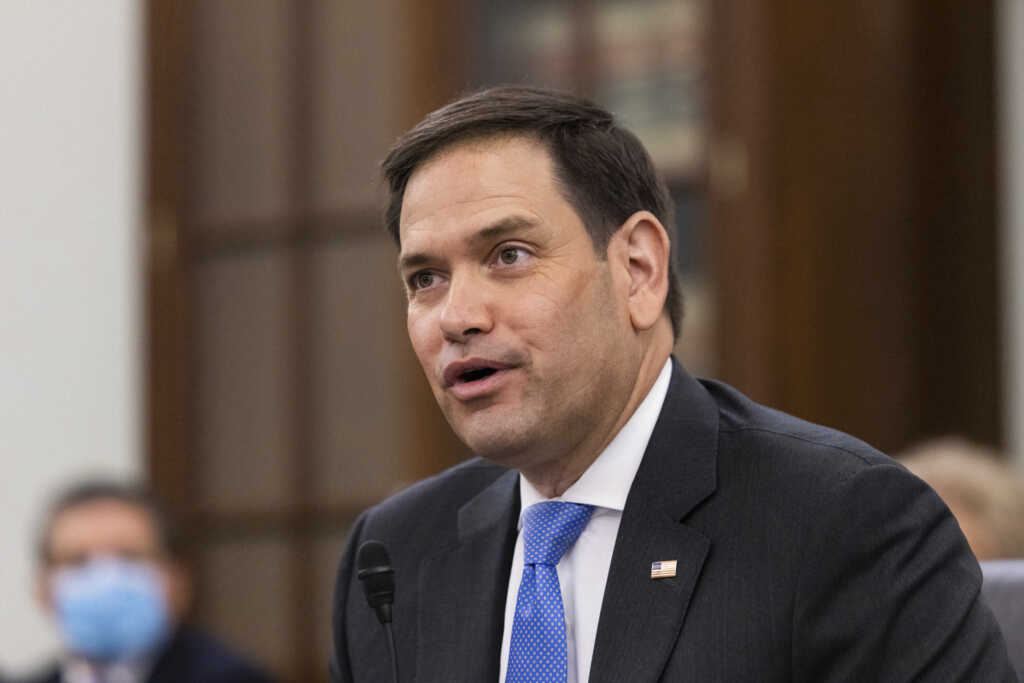Rarely — if ever — do lawmakers agree on things these days. But there is, every once in a while, a faint glimpse of unity. One such moment occurred Tuesday, when every senator voted in favor of an amendment to ensure internet access for anti-communism protesters in Cuba.
The amendment, introduced by Sens. Marco Rubio (R-Fla.) and Rick Scott (R-Fla.), was attached to the Democrats’ whopping $3.5 trillion budget resolution and would, according to Rubio, “create a Deficit Neutral Reserve Fund (DNRF) in the forthcoming reconciliation bill to be used to build up and deploy existing technology on the island.”
“Today, my colleagues sent a clear, bipartisan message that the United States is committed to getting uncensored and unrestricted internet access to the people of Cuba,” he said in a statement. “The technology exists to do this without delay, and I urge the Biden administration to begin moving forward immediately.”
Scott, for his part, said the U.S. “must stand with these brave freedom fighters,” whom he said are taking to the streets of Cuba “to call for freedom and democracy, and an end to the brutal, illegitimate communist Cuban regime.”
LISTEN TO TODAY’S PODCAST AND SUBSCRIBE:
In the lead up to the amendment’s approval, Rubio, who is of Cuban descent, said the bill “creates a reserve fund within the National Telecommunications and Information Administration to help ensure that [the U.S. is] doing all we can to provide internet access, unfettered, uncontrolled by the regime in Cuba, which actually cuts off that access, as it did in the middle of these protests, by the way, using Chinese technology.”
“This would allow us to pursue how we can provide unfettered internet access to the people of Cuba,” he added. “It’s something that I understand has broad support in this chamber, even in the [Biden] administration.”
The Cuban government, Rubio argued, cut off citizens’ access to the internet because, amid protests, they were sharing to social media “the true brutality of that regime by posting videos of what was happening.”
***As the number of voices facing big-tech censorship continues to grow, please sign up for Faithwire’s daily newsletter and download the CBN News app, developed by our parent company, to stay up-to-date with the latest news from a distinctly Christian perspective.***
In mid-July, the head of the Federal Communications Commission said the U.S. government is capable of getting much-needed internet access to the Cuban people.
When freedom protests were raging, FCC Commissioner Brendan Carr said there is “an urgent need right now” for internet capability in Cuba.
“I would say the goal is not universal coverage with speeds that would allow you to download Netflix,” he said. “The question is how do we create the opportunity to continue to share videos and photos?”
Florida Gov. Ron DeSantis (R) joined Rubio in calling on President Joe Biden “to assist in providing internet access to the people of Cuba standing up against communist oppression and demanding a voice after decades of suffering under a cruel dictatorship.”
As for how the internet access would potentially work, Carr told The Washington Free Beacon that the federal government could use a sidelined Google initiative called Project Loon, which utilizes high-altitude balloons to provide internet access to affected areas.
The large balloons hover above the earth’s surface in international airspace and, not unlike cell towers, offer internet connectivity for around 100 days at a time.
Carr said such action by the U.S. is important “to bolster attempts to circumvent the blocking technology” deployed by the Cuban government.
At the time, Biden told reporters he was “considering whether we have the technology to reinstate” internet access in Cuba.
***As the number of voices facing big-tech censorship continues to grow, please sign up for Faithwire’s daily newsletter and download the CBN News app, developed by our parent company, to stay up-to-date with the latest news from a distinctly Christian perspective.***



